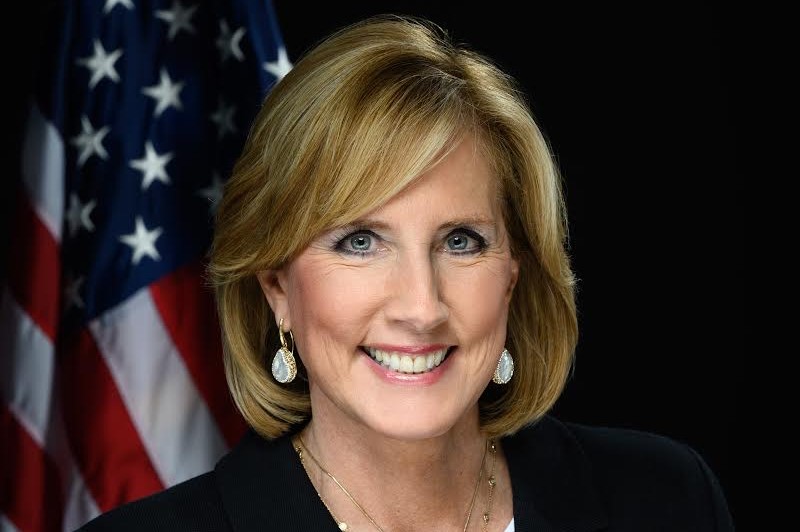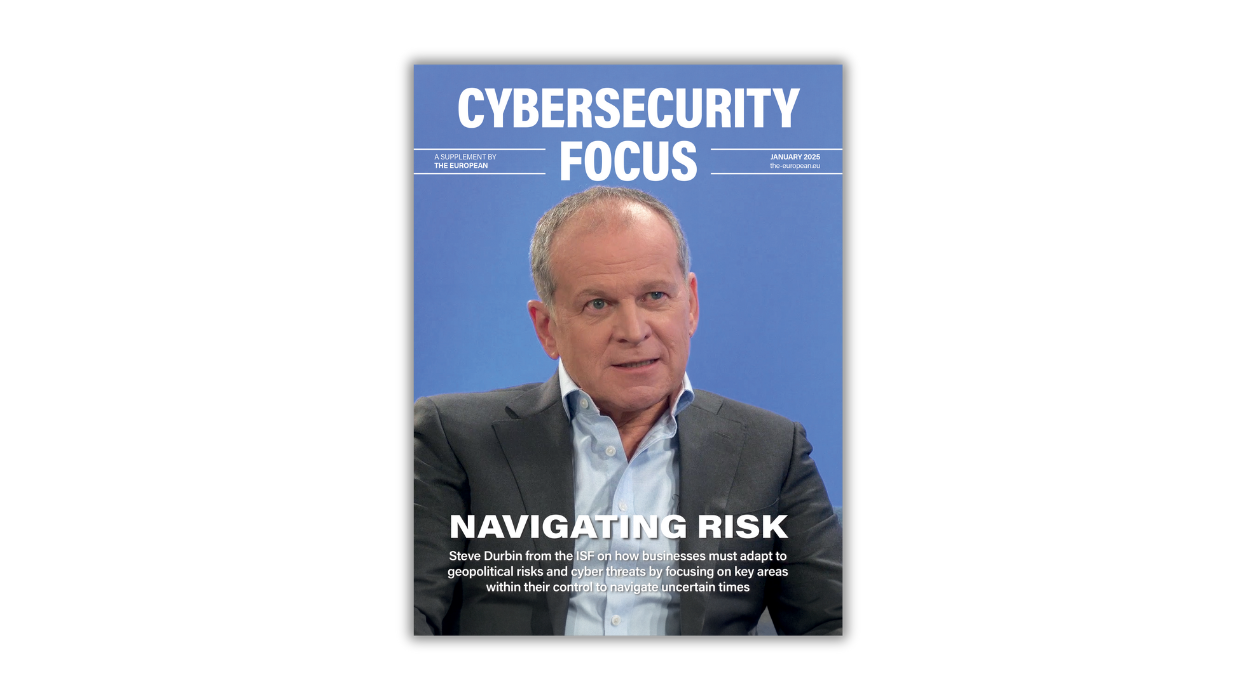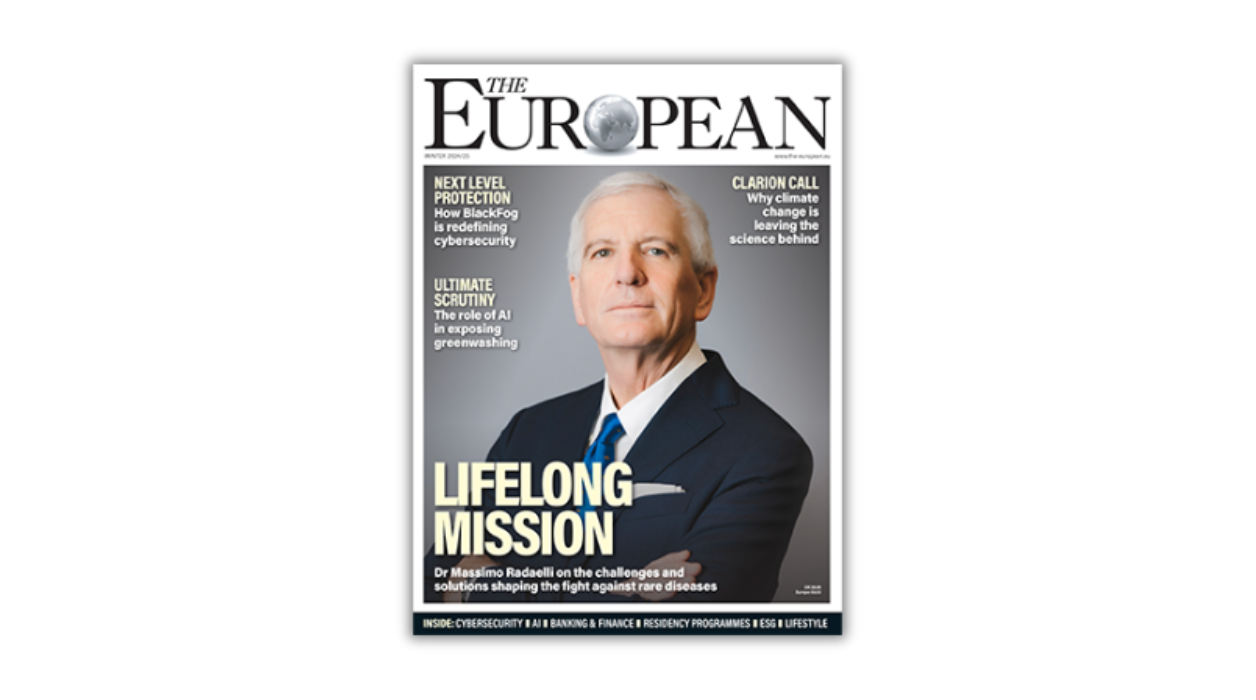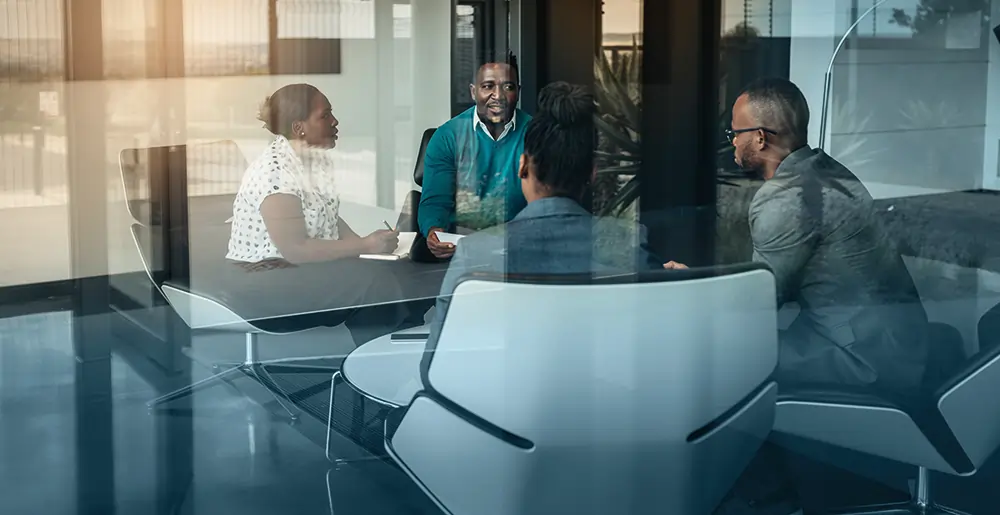Are you willing to change with your organisation?

John E. Kaye
- Published
- Business, Executive Education, Home

Lead from the front with honesty and trust, and positive changes will follow throughout your team, says Zana Goic Petricevic
Change and comfort do not go hand in hand. However, change is one of the inevitable and undeniable realities of existence, whether in our personal lives, in our careers, organisations, or across wider global contexts. How we react to these changes is everything.

As leaders in business we cannot sit back and ask our teams to change without actively changing ourselves, accepting responsibility and working hard to foster a platform for unified positive development. Here are some change-making tips for enacting positive changes in our own personal development, and our organisations, in order to get the best out of critical transition moments.
Avoid detachment
All too often, leaders are willing to sponsor change, but are not willing to lead and actively change themselves in crucial moments of development. They identify a problem as abstract to themselves, supply a budget and strategy for development, which does not involve their own participation, and watch on from the sidelines as other people are forced to deal with enacting the changes.
When we separate ourselves from our teams in this way, stepping back and watching whilst others go through various courses and coaching, we compromise the development process, and the success of the entire development strategy.
It may not be intentional, but this kind of detached attitude often gives off the impression that others are to blame for the problem, and that the leadership is immune to failure. It becomes a kind of unconscious pointing the finger at the rest of the team, and often produces the opposite effect to what we are looking for. Ultimately, we run the risk of producing a less confident, demoralised and less productive team, who are ultimately less capable of reaching their potential or enact the required changes, effectively.
Rather than posing power questions, such as how can we get other people to change? If we focus our attention primarily on ourselves rather than simply practising control over others, we will be more likely to see positive action in the rest of the team and bring about real transformation in our organisations.
Learn self-awareness
We must start any process of change by understanding what is the change we all need, how we can be bolder in proposing it, and what we need to change about ourselves in order to contribute to the success of the agenda.
The skills and tools, which will equip us to be more involved leaders in moments of change, are defined by the questions we dare to ask ourselves consistently in these moments – what can I do better? How can I develop my skills and expertise to be more effective and inspire my team? In order to change ourselves, we need to be reflective, to be able to pull on the brakes, stop and pause and ask ourselves why are we here, where are we going, and why are we going there? What is there still for us to learn?
Be a lifelong learner
If we don’t represent ourselves as active, learning leaders we run the risk of saying to everybody else, “You need to change! You need to learn and improve! But I am immune and exempt in this process.” Unfortunately all this does is destroy the connection and undermine trust, leaving everyone feeling sceptical about the change initiative. Instead, if we use transitional moments to reassess who we were, who we are, and who we want to be, and represent ourselves as continuous learning leaders, actively invested in personal development, both technical and human, we will inspire others to do the same.
"In order to change ourselves, we need to be reflective"
Trust and communication
We never really get other people to change. We can enrol them into change, and for that to happen they need to see us leading the change, walking the walk and talking the talk, instead of simply sponsoring their change. Only then will they trust in the development strategy. When we bring our best, change-making selves, we naturally promote trust, and actively create a platform for accountability and personal development in others too.

This trust and belief in each other is essential, because real change is co-created.
If we surround ourselves with trusted people who can call each other forth, we can all grow through our relationships, and successful change becomes absolutely tied to other people, our interactions and collaborations. If we operate from a space of trust and belief in others we can build a safety net for all, allowing for mistakes and growing together, with an open framework for reflection, awareness, critical dialogue and change.
Communication is key. In order to get the best out of others, and to find solutions together we need to engage our power to listen and our choice to hear, so that we can welcome the diversity of opinions and perspectives that will impact our decision-making process for implementing change. Rather than having a ready-made change to be initiated from the top- down, if we focus our efforts on initiating bold conversations and listening carefully, changes will have more depth and longevity and potential for growth and positive change will be maximised.
Successful change also means trusting that other people’s greatness is part of the equation and having the ability to let go of some of the control to work together.
"Trust and belief in each other is essential"
Take risks and inspire
Are we playing it safe, or are we all-in as leaders? If we don’t take risks in an uncertain and volatile age, we compromise our ability to bring about change, and risk stagnating in the long run.
Change and success is all about having something to lose and sharing risks with others to attain more. If we are willing to take risks as a team, the more safety we can ultimately bring to the organisation and the more likely effective change will be realised.
In order to be successful in leading change we must be passionate about growth, even with the knowledge that it might bring discomfort and inherent risks. If we can identify the meaning of change and inspire our selves and our teams with passion, we will be more able to take risks, make bold choices and enjoy successes as they come. When we act as entrepreneurs for change, and experience the concept meaningfully from the outset, we can enjoy the process, not as a fixed destination we are aiming to reach, but the whole journey of positive change, in general. If we relate to and support our teams, take risks, engage and be open to the passion and interests, opinions and ideas of others, as well as actively showing our own, we can foster an engaging platform for group solutions and concrete changes.
Therefore, it is crucial for us to build and nurture bold relationships, believe in each other and inspire each other. Only by stepping into change together, by providing adequate feedback and fortifying support can we go through change successfully.
Change
When we step up and lead the process of change in our organisations from the top-down we can inspire our teams to positively react to critical challenges. If we promote a focused, self-aware and unified approach to change, based on communication and taking on responsibility, development goals will be more likely to be fulfilled, and positive changes will occur throughout the team.
If we can stand up, and bring our authentic, proactive selves, we can create cultures of change based on conversation and shared goals, which will make the world and our organisations better and better.
ABOUT THE AUTHOR


Zana Goic Petricevic is an internationally certified leadership coach, consultant and keynote speaker. She is the founder of Bold Leadership Culture, and the author of ‘Bold Reinvented: Next level leading with Courage, Consciousness and Conviction’.
RECENT ARTICLES
-
 Managing cross-border risks in B2B e-commerce
Managing cross-border risks in B2B e-commerce -
 Research highlights rise of 'solopreneurs' as technology reshapes small business ownership
Research highlights rise of 'solopreneurs' as technology reshapes small business ownership -
 Human resources at the centre of organisational transformation
Human resources at the centre of organisational transformation -
 UK government sets up Women in Tech taskforce amid gender imbalance concerns
UK government sets up Women in Tech taskforce amid gender imbalance concerns -
 Liechtenstein lands AAA rating again as PM hails “exceptional stability”
Liechtenstein lands AAA rating again as PM hails “exceptional stability” -
 The Parisian business school quietly reinventing the MBA
The Parisian business school quietly reinventing the MBA -
 UK entrepreneur who founded £1bn firm acquires UAE amateur golf leader to launch world amateur Super League
UK entrepreneur who founded £1bn firm acquires UAE amateur golf leader to launch world amateur Super League -
 Why your home is the best place to teach children leadership
Why your home is the best place to teach children leadership -
 Inside the Spring 2025 Edition of The European
Inside the Spring 2025 Edition of The European -
 The Paris MBA designed for real-world leadership
The Paris MBA designed for real-world leadership -
 Soft2Bet reflects on eight years of leadership and philanthropy in new film featuring CEO Uri Poliavich
Soft2Bet reflects on eight years of leadership and philanthropy in new film featuring CEO Uri Poliavich -
 Global Banking School celebrates ‘milestone’ anniversary
Global Banking School celebrates ‘milestone’ anniversary -
 Saudi Arabia hosts the fourth Riyadh International Humanitarian Forum
Saudi Arabia hosts the fourth Riyadh International Humanitarian Forum -
 New York Congresswoman pushes for Trump’s birthday to be enshrined as federal holiday
New York Congresswoman pushes for Trump’s birthday to be enshrined as federal holiday -
 Red light, green bite: Netflix restaurant opens in Vegas
Red light, green bite: Netflix restaurant opens in Vegas -
 Read our Cybersecurity Focus supplement, featuring insights from Information Security Forum
Read our Cybersecurity Focus supplement, featuring insights from Information Security Forum -
 Davos World Economic Forum 2025: Collaboration for the Intelligent Age
Davos World Economic Forum 2025: Collaboration for the Intelligent Age -
 The European releases its Winter 2024/25 edition
The European releases its Winter 2024/25 edition -
 Read our FDI Focus supplement, featuring insights from Michael Lohan of IDA Ireland
Read our FDI Focus supplement, featuring insights from Michael Lohan of IDA Ireland -
 PizzaExpress to Expand Dough Base Stateside
PizzaExpress to Expand Dough Base Stateside -
 The two core skills middle managers need to navigate stormy weather
The two core skills middle managers need to navigate stormy weather -
 The Role of Financial Regulations in the Online Casino Industry
The Role of Financial Regulations in the Online Casino Industry -
 How to become a game-changer
How to become a game-changer -
 Taking the risk out of BOP ventures
Taking the risk out of BOP ventures -
 Releaf leading the way with marketing
Releaf leading the way with marketing



























